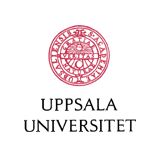|
Long Term Channel Characterization for Energy
Efficient Transmission in Industrial Environments.
Piyush Agrawal,
,
Anders Ahlén
,
Tomas Olofsson
, and
Mikael Gidlund , ABB.
IEEE Transactions on Communications
,
© 2013 IEEE
-
Abstract:
-
One of the challenges for a successful use of wireless
sensor networks in process industries is to design networks
with energy efficient transmission, to increase the lifetime of
the deployed network, while maintaining the required latency
and bit-error rate.
The design of such transmission schemes
depend on the radio channel characteristics of the region. This
paper presents an investigation of the statistical properties of the
radio channel in a typical process industry, particularly when the
network is meant to be deployed for a long time duration, e.g.,
days, weeks and even months.
Using 17 to 20 hour long extensive
measurement campaigns in a rolling mill and a paper mill, we
highlight the non-stationarity in the environment and quantify
the ability of various distributions, given in the literature, to
describe the variations on the links.
Finally, we analyze the
design of an optimal received signal-to-noise ratio (SNR) for
the deployed nodes and show that improper selection of the
distribution for modeling of the variations in the channel can
lead to an overuse of energy by a factor of four or even higher.
|
Research on wireless comm. in the Process industry
|
Main
entry in list of publications
|
This material is posted here with permission of the IEEE.
Such permission of the IEEE does not in any
way imply IEEE endorsement of any of Uppsala University's
products or services.
Internal or personal use of this material is permitted.
However, permission to reprint/republish this material for
advertising or promotional purposes or for creating new collective
works for resale or redistribution must be obtained
from the IEEE by writing to [email protected].
By choosing to view this document, you agree to all
provisions of the copyright laws protecting it.
|

